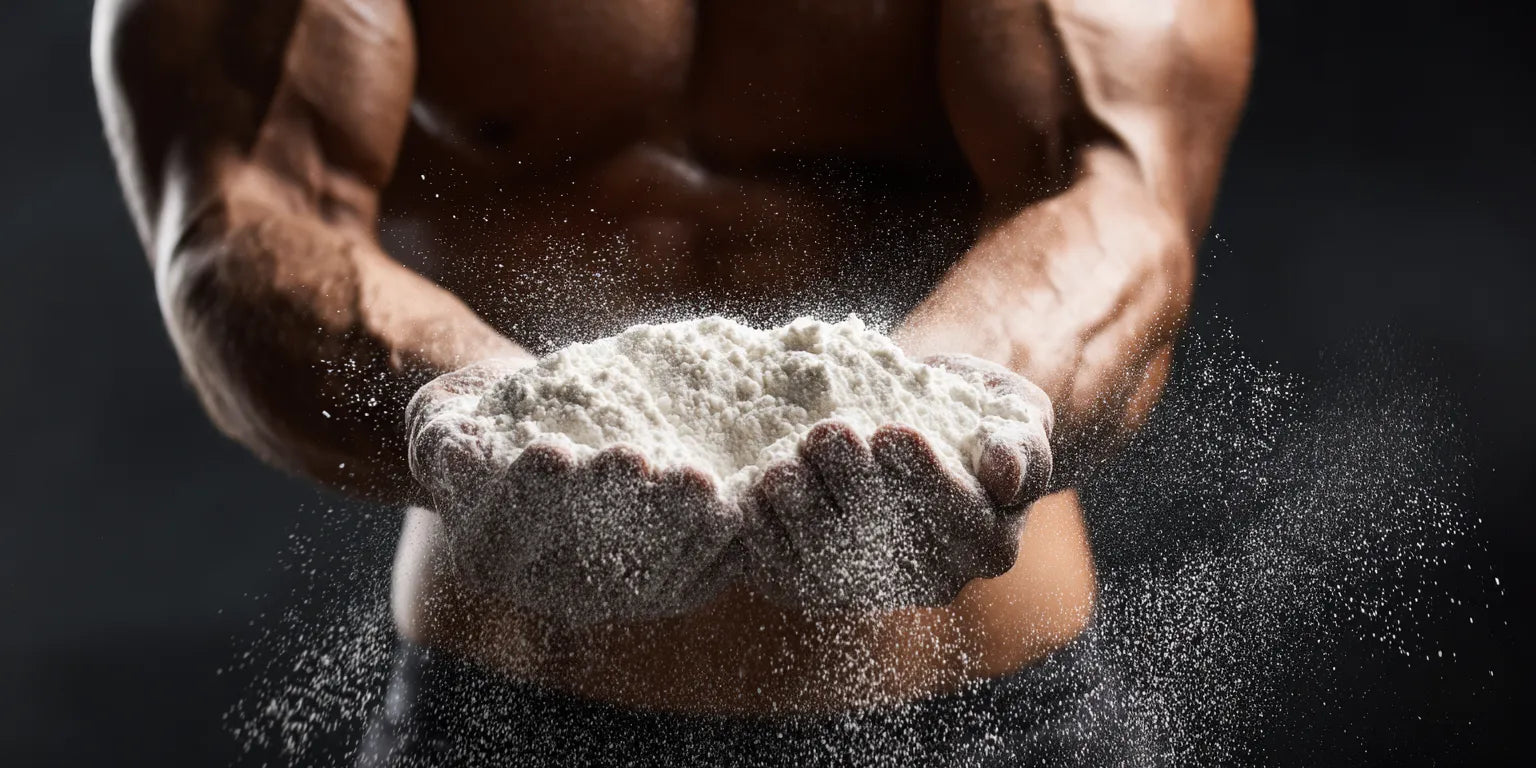The Athlete’s Guide to Collagen: Different Needs for Different Sports

Athletes are always searching for ways to recover faster, perform better, and stay injury-free. While protein, creatine, and electrolytes often take center stage, collagen is gaining traction as a supplement that supports joint integrity, connective tissue repair, and overall musculoskeletal resilience.

But not all athletes stress their bodies the same way. A long-distance runner has different recovery needs than a powerlifter, and a gymnast places unique demands on connective tissues compared to a swimmer. So how does collagen supplementation fit into different sports—and should every athlete consider it?
This article breaks down how collagen works, why it's relevant to athletic performance, and how different types of athletes can use it to support their training and longevity.
Why Collagen Matters for Athletes
Collagen is the most abundant protein in the human body, making up about:
- 30% of total protein mass
- 75% of skin
- 90% of connective tissues
While collagen isn't a "complete" protein (it's low in certain amino acids like tryptophan), it's rich in glycine, proline, and hydroxyproline—amino acids essential for:
- Tendons
- Ligaments
- Cartilage
- Skin and fascia
- Bone matrix
Unlike muscle tissue (which is built with leucine-rich proteins like whey), connective tissue repair depends heavily on collagen-building amino acids—making collagen a uniquely relevant supplement for athletes concerned about injury prevention, joint health, and long-term performance.
Collagen vs. Traditional Protein Supplements
Most athletes prioritize protein intake for muscle repair and recovery. But traditional protein powders (like whey, casein, or plant blends) don't provide the specialized amino acids required for collagen synthesis.
Collagen supplements complement, rather than replace, a high-protein diet by:
- Filling a gap in connective tissue nutrition
- Supporting injury-prone areas like knees, shoulders, and ankles
- Helping with tissue resilience under load (like running or heavy lifting)
Tailoring Collagen Use by Sport
Different sports tax the body in different ways. Here's how collagen supplementation can be adapted to the unique demands of various athletes:
1. Runners & Endurance Athletes
Stress Points: Knees, hips, ankles, and feet.
Common Injuries: Patellar tendinopathy, Achilles tendonitis, plantar fasciitis, stress fractures.
How Collagen Helps:
- Strengthens tendons and ligaments to withstand repetitive impact
- Supports joint cartilage to reduce wear and tear
- May reduce recovery time and inflammation post-run
Best Practice:
- Take 10-15g of collagen + 50mg of vitamin C 30–60 minutes before a run or rehab session to stimulate tendon remodeling, based on research from the Australian Institute of Sport.
2. Strength & Power Athletes (Lifters, CrossFitters, Strongmen)
Stress Points: Shoulders, elbows, knees, spine.
Common Injuries: Tendon strains, ligament tears, joint pain, back injuries.
How Collagen Helps:
- Improves ligament stiffness and durability under load
- Enhances joint capsule strength, important in heavy lifts
- May improve tissue resilience during eccentric contractions
Best Practice:
- Stack collagen with vitamin C and gelatin-rich foods
- Use it during deload weeks or joint rehab cycles
💡 Bonus: Collagen also contributes to bone matrix density, making it beneficial in strength sports where bone stress is high.
3. Team Sport Athletes (Soccer, Basketball, Football)
Stress Points: Knees, hamstrings, ankles.
Common Injuries: ACL tears, meniscus damage, hamstring pulls.
How Collagen Helps:
- Supports joint stability and ligament strength
- Aids in post-practice recovery and tissue repair
- May reduce risk of non-contact injuries
Best Practice:
- Daily collagen use during in-season periods
- Useful as a preventive measure during high-intensity training
4. Gymnasts, Dancers, & Combat Athletes
Stress Points: Wrists, spine, feet, joints under dynamic tension.
Common Injuries: Ligament sprains, tendon overuse, bone bruises.
How Collagen Helps:
- Supports hypermobile joints and flexibility training
- Helps repair connective tissue microtrauma
- Aids recovery from high-impact landings and complex movements
Best Practice:
- Use collagen during off-season or recovery phases
- Ideal when combined with joint mobility work
5. Aging Athletes or Those in Rehab
Stress Points: General wear and tear, slower healing.
Common Issues: Osteoarthritis, reduced recovery capacity, joint stiffness.
How Collagen Helps:
- Stimulates cartilage regeneration
- Reduces joint pain and stiffness
- Enhances muscle-tendon unit recovery after injury
Best Practice:
- Combine with physical therapy or mobility work
- Consider multi-type collagen (Type I, II, III) for broader benefits
When and How to Take Collagen
For targeted connective tissue support, collagen timing matters more than for muscle repair.
✅ Recommended Use:
- 10–15g hydrolyzed collagen peptides
- 50–100mg vitamin C
- Taken 30–60 minutes before training, rehab, or loading tendons
Vitamin C is essential as a cofactor in collagen synthesis—without it, you won't get the full benefits.
Choosing the Right Collagen Supplement
When shopping for collagen:
- Look for Type I and III collagen (for skin, tendons, and ligaments)
- Consider Type II for cartilage-specific support (e.g., in knees)
- Choose hydrolyzed collagen peptides for best absorption
- Select unflavored, additive-free formulas to avoid gut irritation
Popular brands for athletes:
- Vital Proteins
- Great Lakes Collagen
- Momentous Collagen Shot (with vitamin C)
- Bulletproof Collagen Protein
Is Collagen Safe and Effective Long-Term?
Collagen is generally safe, well-tolerated, and easy to incorporate into daily nutrition. Side effects are rare but may include mild bloating in sensitive individuals. It's not a substitute for a high-protein diet but works alongside it to support the body's "soft tissue" infrastructure.
Athletes looking to:
- Prevent injuries
- Heal faster
- Improve joint durability
- Extend career longevity
…will likely benefit from consistent collagen supplementation tailored to their sport-specific demands.
Final Thoughts
Athletes often focus on building muscle, but supporting the connective tissues that hold that muscle together is just as critical. Whether you're logging miles, lifting heavy, cutting on the field, or pushing your body to its limits—collagen provides a targeted, functional tool to keep your joints, tendons, and ligaments in peak form.
The key is consistency, proper dosing, and matching your collagen strategy to your sport's unique demands.

















